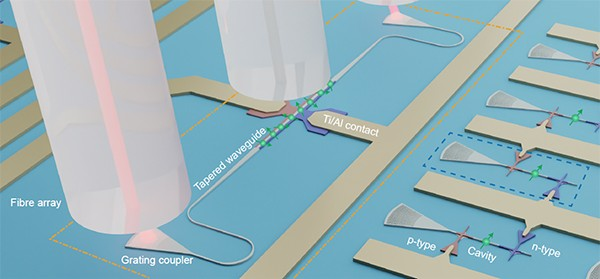
Developing quantum technology using silicon provides opportunities to rapidly scale quantum computing. The global semiconductor industry is already able to inexpensively manufacture silicon computer chips at scale, with a staggering degree of precision. This technology forms the backbone of modern computing and networking, from smartphones to the world’s most powerful supercomputers.
“Our colleagues Stephanie Simmons and Mike Thewalt first proposed silicon colour centres as a platform for quantum computing at a time when very few people were thinking about them at all,” says Higginbottom.
Now, national governments, including Canada through its National Quantum Strategy, major universities and corporations like IBM, Google and Microsoft are spending billions of dollars in a scramble to be first out of the gate with a scalable quantum computer.
Higginbottom says being at the forefront of the field has been a thrilling experience.
“It fits into this trajectory that we’ve been on. In 2020, SFU first introduced silicon T centers for quantum applications. In 2022, we integrated Single T centers with patterned nanophotonic devices,” he says. “But those devices didn’t have any interfaces or controls. Now we’re controlling them optically and electronically. We’re unlocking some of the capabilities that you need to build a useful computer out of these things.”

